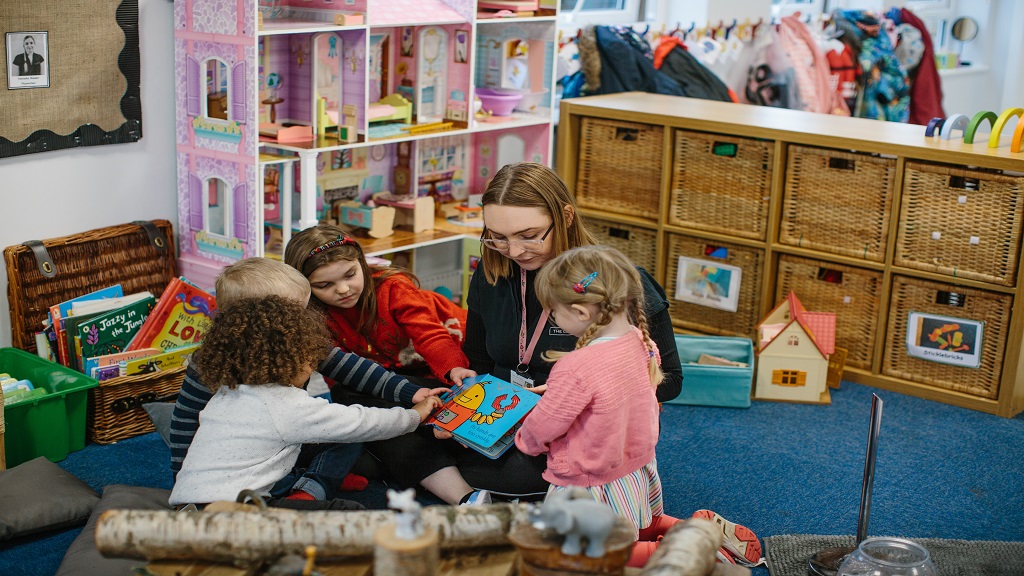Family First are big advocates of team members completing apprenticeships and learning while they earn, with more senior staff now…
Value and appreciate your staff
It’s not news that the sector is going through a recruitment crisis, but what are the key strategies for boosting retention? Stella Ziolkowski, director of quality and training at National Day Nurseries Association has some ideas
What workforce trends have you seen evolving across the sector in the past 12 months?
A major trend within the early years sector at the moment is the issue with staffing, recruitment and retention. As the ratio between the number of staff-to-children is integral for the running of a nursery, issues with staffing are causing multiple settings to close their doors as they are no longer able to operate.
The rise in the cost of living is also having a major impact on the sector. This is where T Levels and apprenticeships can help our sector with their future talent pipeline.
How can the sector address these trends effectively?
As an industry we need to celebrate the work that early years providers do for children aged 0-5 years old more widely, in order to improve perceptions of the sector and encourage more people to think about a career in early education. At National Day Nurseries Association we are launching the second phase of our First Five Years Count campaign early this year, which aims to increase the understanding of the importance of childhood education and increase the positive perception of the early years workforce. Find out more about the campaign at: ndna.org.uk/firstfiveyearscount/
The early years sector is going through a significant workforce crisis. What recruitment strategies would you advise to owners/managers when hiring?
As early years education and care is so important to the development of a child, I would recommend that managers place great importance on the passion of potential candidates when it comes to this responsibility to ensure staff are committed and dedicated to the role.
Owners and managers could also consider the opportunities of hosting a T Level student or an apprentice and the positives that this can have on the nursery too. This can be one of the best ways to bolster the workforce by recruiting fresh talent through student placements.
I would encourage any childcare provider looking to develop their business to get involved by hosting a T Level student as part of their business plans as this can support the talent pipeline I have already mentioned. When a student has had a positive experience on their industry placement they are more likely to want to return to the same employer on completion of their study.
At National Day Nurseries Association, we have a useful tool that provides employers with additional support for recruiting staff. You can find out more at: ndna.org.uk/product/recruitment-and-selection/
Even more importantly, what advice can you give on how to retain staff as we see a high turnover rate
Like with all workplaces, it’s important that employees within the sector feel valued and appreciated by their employer. Simple steps can be taken to make sure this is the case, for instance some early years providers offer meals at work for staff or offer discounted childcare, which may appeal to staff who are parents. To ensure you are able to do this effectively in ways that best cater to practitioners’ needs, finding out what would help to retain staff is essential. Employers could survey their teams to identify what employees would like to see from their workplace.

Positive impact of apprenticeships
Can you detail more specifically about T levels and what they can deliver?
A T Level is equivalent to three A Levels and consists of 80% classroom-based study and 20% industry placement with an employer, offering hands-on experience within the workplace.
Hosting a T Level student offers the opportunity to provide real-life experience for a student in the workplace. The students themselves are able to bring what they have learnt in the classroom into the workplace in order to have a real impact on the business they enter. The benefits span both the student and the employer.
Overall, how can apprenticeships support a growing quality workforce?
Hosting either an apprentice or a T Level student can be invaluable to a business’s growing workforce. As I have explained, they provide a pipeline of fresh talent who get to know you and your business before potentially being taken on as a member of staff. It’s like a long-term interview for both parties.
Unfortunately, in recent years we have seen a decrease in the recruitment of apprentices and are promoting our First Five Years Count campaign to training providers and careers services to increase the uptake once again.
What are the costs and how will this help nurseries save money?
Onboarding either a T Level or apprentice student is a cost-effective method of recruitment of additional staff for early years providers, with nurseries deciding internally on payment for additional staff.
Although training apprentices can be time-intensive, many of these individuals are passionate about the sector and so investing time in them to become an early years practitioner will have added benefits to their development and increase the likelihood of them remaining in the role after finishing their qualification. The value these students add can be priceless in the recruitment of fresh talent and future workforce planning, making each apprentice or T Level student a great return on investment.
We would also encourage early years managers to explore onboarding a T Level student or apprentice to help booster a nursery’s workforce. You can find out more information on how to onboard a student and best practice for hosting an apprentice or T Level student at: gov.uk/government/publications/t-level-industry-placements-employer-guide
Cost of living
What cost of living recommendations be applied to staffing specifically?
When it comes to recruiting staff, we would encourage early years providers to embrace ‘out of the box’ thinking and utilise the various tools and resources available to them. Other than the conventional posting on job boards and creating posters, early years providers can consider hosting open days, speaking at local sixth forms and colleges and even making the most of social media, for example through targeted ads or content creation.
As mentioned, onboarding a T Level student or apprentice is another way to boost and futureproof the workforce.
Overall, what is your market overview predictions for the future in terms of recruitment?
I am hopeful that with additional government schemes, such as the push to upskill adults, as well as the drive to onboard students through T Levels and apprenticeships, we will see greater uptake and interest for working in the early years sector. We in the sector also have a job to do in showcasing the positive impact we have on the lives of children each day, and ultimately use this rewarding career as a way to attract fresh talent.
Latest Features
NMT takes the temperature of the early years market and offer tips for marketing, launching a new nursery, and utislising…
In this leadership series, NMT speaks to Gareth Degenhart, founder and managing director, The Lime Trees What has been your…




